April 16-18, 2010 was Jack Hanna Weekend at SeaWorld Orlando – followed by another Jack Hanna Weekend at Busch Gardens Tampa April 22-25. Celebrity animal expert Jack Hanna came specifically to celebrate Earth Day. The weekend at SeaWorld included special shows and animal encounters as well as a breakfast buffet with Jack Hanna himself. At Busch Gardens Tampa, Jack Hanna hosted a family sleepover and a Serengeti Night Safari in addition to the animal presentations and breakfast.
Before his visit, “Jungle Jack” Hanna joined us on the DIS Unplugged to talk about his work. You can listen to my complete interview with Jack Hanna, or read the transcript after the break.
Image: “Jungle Jack” Hanna. Photo by Rick A. Prebeg, World Class Images
Click here to listen to the complete interview with Jack Hanna.
Dave Parfitt: Thanks for joining us, Jack.
Jack Hanna: Oh, nice to be here. It really is. I love talking about SeaWorld and Busch Gardens and all of our parks.
DP: Jack Hanna is recognized world over for his knowledge and enthusiasm for wild animals and wildlife conservation. He has been working with animals most of his adult life since graduating college. In fact, he started his professional career right in the Orlando area as director of the Central Florida Zoo in Sanford. In 1978, he became director of the Columbus Zoo and Aquarium where he served as executive director until 1992. He continues to serve to this day as director emeritus of the Columbus Zoo in Ohio. Jack Hanna is also the host of the nationally syndicated television show “Jack Hanna’s Into the Wild” which won a Daytime Emmy for Outstanding Children’s Series in 2008.
DP: So Jack, what should guests coming to SeaWorld or Busch Gardens expect for “Jack Hanna Weekend”?
JH: Well, you know, we’ve been doing this for quite a few years now. I was involved with SeaWorld many, many years ago and Busch Gardens. As a matter of fact, I spent my honeymoon at Busch Gardens in 1968. What’s that, 42 years ago? You can see how much I’ve loved animal parks, especially the Busch Gardens and SeaWorld parks that set the standard for most zoological/aquariums parks like this throughout, not just this country but throughout the world. They’re magnificent places. They’re places where the number one goal of what we do is education. SeaWorld and Busch Gardens do a great job of spicing it up with entertainment as well as the educational value. Education really is the number one goal from the folks leading these parks, like the Columbus Zoo where I’m Director Emeritus in Ohio, or any zoo in this country – American Zoological Association and Aquarium accredited zoos and aquariums. When anyone leaves these parks, they’ve had a fun day with their family, and they’ve been educated about the animal world. That’s our number one goal.
DP: Will you be bringing animals along with you on the trips to SeaWorld and Busch Gardens, or will you be focused more on the animals already in the parks?
JH: Oh yeah, oh yeah. No, no, we have great animals. Some collected from some of my shows around the world. I just got in from Africa last night – Rwanda and South Africa, but I’ll have some great animals. I’ll have a cheetah, the fastest running land mammal in the world, some penguins, some birds of prey will fly, maybe a giant anteater, some reptiles, the list goes on and on and on. It’s about a 30-40 minute show, just nonstop where I talk about animals from every continent in the world – as a matter of fact.
DP: That sounds fantastic.
Now I have to ask you about this. Of course we all have been reading the news, and it’s been discussed on our show before, about the recent terrible accident and tragedy at SeaWorld that resulted in the death of a trainer by the killer whale Tillikum. Did that accident give you any pause in coming to SeaWorld so soon after the incident?
JH: No, no pause whatsoever. Think what your question is. Does an accident or a death at NASCAR or Indy or even sometimes in certain sports around the world hesitate people in going? The answer’s no. Not just for that, Dawn (Brancheau), whose memorial service is this weekend, gave her life doing something – as her family said, what she loved to do. She loved to educate people. The millions of people this young woman has educated over the years is phenomenal.
In the zoological world we work with wild animals. It’s called a KILLER whale. But nowhere else in the world can you go, but the SeaWorlds and I think one or two other parks throughout the world, but I do know that SeaWorld… I mean I don’t work with SeaWorld… people want to know, “Is this a living for me?” Yes, it’s a living, but I worked with SeaWorld way before it had anything to do with being a living. The reason I did that is because I would watch what they do. I watched the outstanding facilities they have, the trainers, the dedication… a killer whale trainer is like an astronaut. They’re beyond comprehension. I mean, how many killer whale trainers do you know? Do I know? I think there are about what – 70 or 80 in the entire world? I don’t know… but they’re just like an astronaut. What happens to some astronauts, god forbid? What happened to our shuttle several years back? We lost some astronauts, but what happened? They went right back up in space, didn’t they? Same thing here, SeaWorld I hope – I don’t work with SeaWorld as far as a keeper or anything else – the point is, I hope SeaWorld makes the decision to continue the great work that Dawn and other people like that had dedicated their lives to.
Things happen, yes. Will things happen again? Of course they will. It could be the Columbus Zoo. It could be any zoo throughout the country – the 220 zoos and aquariums. Because we work with safety of our visitor first and safety of our animals – that’s our number one goal, but could something happen? Of course it could happen. Because we’re trying to work with these animals in a situation, and by the way… 99% of our animals are born in our parks… 99%. We don’t take them from the wild like a lot of animal rights folks will tell you that we do. We don’t. There are several, yes. But SeaWorld, their breeding programs there, of the killer whale, are something that when you sit back in several years we’re going to say, “Thank god for the SeaWorlds.” Because they’re the ones that are artificially inseminating the killer whale. They’re the ones that are telling us what is going on with these whales in the wild, and that’s the only way we’re going to learn.
Some people say, “Well go out and see them in the wild.” That’s good for people to say that, but how much money does that take? Whenever I go film, like I just got back yesterday, I would love for people to go and film with me in the wild, but 99.9% of the people in the world can’t do that. They don’t have the money, number one – they don’t have a show like I have, I wish they did, but that’s why I try to bring that back to people. Still, when you see something like this – I’m never a serious person if you see how I do TV – when you see something like a killer whale at SeaWorld, I always have chills all over and say, “We’ve got to help save that animal.” That’s what the gist of this whole thing is. Unless someone loves something, they can’t save something. So, praise the Lord for SeaWorld.
Someone said, “But they make money off their customers.” Of course they do, I hope they make billions of dollars. I hope SeaWorld makes billions. Last year they put in over $20 million dollars in rehabbing animals in the wild, do you realize that? No, not many people know that do they? They don’t know that SeaWorld has the largest rehabilitation of the manatee population – less than 2,400 animals left in the world maybe, we don’t know, 3,000 maybe, who knows? Very few. They do more for rehabbing the manatee than any park in the entire world, all of them put together. SeaWorld probably spends more money than all of the zoological parks in the country put together. The dolphin, the killer whale, they do so much for rehabbing these animals, but they don’t talk or brag about it. That’s what they do. Of course, you know, you don’t hear these kind of things.
So the answer to your question is: I encourage everyone to go to SeaWorld if you want to learn more about one of the most magnificent creatures in the world.
DP: And we’ve talked about this on the show before; that SeaWorld does spend millions of dollars on animal rehabilitation, and they should be commended for their work with the manatee and sea turtle populations.
JH: Exactly, you’re right, they sure should. It’s just too bad because it would be nice to hear about all the great articles in papers about what SeaWorld does positively. I’d love to see some articles like that, but they’re not going to do that. And I’m in the media by the way, so, obviously, I’m in the media. So I just wish… our show, I think, over the last 20 years has put in some real positives over 400 shows around the world. We teach people about the animal world in a fun and educational way.
DP: That’s right. So do you think this incident is going to cause people and society to reexamine the role of places like SeaWorld? I notice there’s a Congressional Oversight Committee hearing on marine mammals scheduled for later this month.
JH: Yeah… well, I hope they don’t change anything at SeaWorld. That’s my opinion. I would think people in Washington would have other things to worry about right now. Was Dawn’s death a tragedy? Sure it was. It’s incredible, one death, anybody’s death is a tragedy. But think about other things that are tragedies: the war, the economy, job loss, I could go on and on. You’d think in Washington they’d consider working on things like that that are a little more important than trying to figure out… you know, SeaWorld does it the best there is, period. It’s not because I’m doing speeches there this weekend or next weekend or if I died tomorrow, the point is, I go to my grave saying that SeaWorld/Busch Gardens are two parks that set models for the rest of our industry. If we can do it just as good as they can, then we’re pretty good.
DP: You describe your role today as that of an educator. You’re obviously very passionate about animal conservation. Do you think we’ve made strides as a society in the realm of animal preservation and conservation?
JH: Oh sure we have. My generation, the Baby Boomers, didn’t do much of strides for anything. We kind of wrecked the planet for everyone else – the Baby Boomer generation, but today’s generation of young people are doing a tremendous job of turning this around. They really are. They’re very much aware of what’s happening. It’s not just the recycling; it’s not just the new different types of automobiles; environmental planting of trees; and I could go on and on and on; cleaning up of our lakes and our water systems; but I tell people all the time. The number one problem throughout the world is overpopulation. If you think about it, what causes the ozone problem? What causes the pollution of our water? What causes the lack of forests? What causes people to starve? It doesn’t take a rocket scientist to figure out that the planet, now that I’ve traveled it, is a small place, and we cannot keep overpopulating it. It’ll never catch up. Right now everyone says, “Oh, we’re doing all these things…”, but you can sit here and make every car in the world electric, you can sit here and plant every tree you take away, you can sit here and do all these kinds of things, but nothing, NOTHING’s, going to work as long as the world keeps overpopulating. We’re just continuing to play catch up. You follow what I’m saying?
We have to get control on it – period, but no one wants to talk about it because it deals with all kinds of aspects of life.
DP: Exactly, that’s right, and the one thing you were saying about us all being connected as well, it’s so true. Our economies are all connected too, and what we’re consuming and buying here in the United States is affecting economies and populations across the world.
JH: Yeah, right. It’s whether, what we’re doing… it’s also whether China, have you been there before, and seen the pollution there? The population they have under control now, but China does very well because of how their working labor force is. They love to work there – pollute the world, maybe not. I think we’re doing a great job here trying to control our pollution. And like some people say, the Green Movement is incredible. I think it should have been done years ago. However, some of this Green Movement is costing more than the value of what the Green Movement’s doing. We have to be very careful when we talk about doing certain things how much it’s costing in jobs, how much it’s costing human beings. We have to look at the price tag on everything.
I had a young man in our zoo say, “Hey Jack, we need to get our 17 boiler systems at the zoo converted to solar energy, like ground water, and all that kind of stuff.” I said, “Oh really? How do you intend to do that? How much money do you think that is? That’s tens of millions of dollars. I don’t have that kind of money right now. Plus, guess what? It’s your job. Probably you’ll lose your job over this whole kind of thing.”
You just can’t make these kinds of decisions in a tomorrow situation. We’re not going to change all this tomorrow. I think we’re doing a great job in terms of long range planning for my kids and my grandkids, but let’s all sit down and see what the cost is to all this. Some of it, by the way, is not working. It’s not exactly what we all see. But, anyway, I’ll get off the seriousness of this interview because I’m more of a fun person.
DP: That’s OK. We certainly deal with serious issues on the show. So that’s not a problem at all.
JH: Right. I just want to thank you all for encouraging people to come to Orlando. I came here in 1973 to help build the Central Florida Zoo, and I saw what Orlando was. I see what it is today. I see what this great area of Central Florida does for billions and billions of people around the world who come here. Why do they come here? To go to a SeaWorld, to go to Busch Gardens, to go to Disney, to go to Universal, that’s why they come here.
You take billions and billions of people, and you read an article like this in USAToday and you wonder how could millions of people go here? Are some lives lost? Several, yes. There are probably… how many lives are lost maybe even coming to Orlando? Who knows that? You follow me? Whatever…
Image: “Jungle Jack” Hanna. Photo by Rick A. Prebeg, World Class Images
DP: You travel more than 250 days out of the year. You speak to groups and media, and filming your television shows. I understand you just returned from Africa. Any interesting stories you can share with us of your most recent trip?
JH: Well yeah, we got to see the white lions in Southern Africa. We got to track animals on foot like the rhino, like the elephant, like the leopard, the cheetah, animals like the gorillas in Rwanda – where I have a home there. We could track the gorillas in the wild and sit about 50-75 feet from them and watch them in the wild. Over the years they’ve gotten used to human beings in these National Parks. So it’s really an incredible experience. Every time I do it I can’t believe I’m doing it. Especially this last trip, I got to do it with cheetah and lion and elephant and rhino, and help relocate rhino.
There’s an example right there, the rhinoceros in South Africa. They’ve lost one every other day since January 1st. They’ve been poached. It’s almost like a drug ring down there. They’re killing them for their horns used for aphrodesiacs as well as for medicine as well as for dagger handles in the Middle East. Killing them, the second largest land mammal in the world, almost wiping them off the face of the earth. The Black Rhino – there were 60,000 in 1978, today there’s less than 3,000. So, the zoological world does a great deal with research with the rhino species especially.
But I just want to thank everybody for going to these parks – especially the Columbus Zoo and other parks around the country, SeaWorld and Busch Gardens like I said. I’ll be seeing everyone down there this weekend and next weekend, and I go to all the parks. I just love going to the parks, I really do. I’ve been a very lucky person in my life to be living the dream of working with animals. That’s what Dawn would have wanted, the former trainer at SeaWorld. She wants her dream to be carried on, that’s what I intend to do, and that’s what others intend to do.
DP: I understand your children have followed you somewhat in your career. You hosted “Jack Hanna’s Animal Adventures” for many years with your oldest daughter, Kathaleen, and your youngest daughter Julie is currently an animal educator with the Columbus Zoo. That must be very rewarding for you.
JH: Yeah, my wife does the show with me, and we’re going to continue to go back out there to see some more Polar Bears at the North Pole and right back to Africa next year. I go to Ecuador, Galapogos Islands, Chile, on the shows coming up. I think people enjoy “Into the Wild” because it’s my family taking their family on a safari and trips around the world.
DP: Can you give me a call and let me know the next time you’re going to go? In case you need a correspondent to report back to our show?
JH: Alright, alright, I’ll sure do it. I really will. You’re awful nice. I appreciate the interview, and I’ll look forward to seeing everyone at SeaWorld and Busch Gardens the next two weekends.
DP: Thank you very much for taking the time out of your busy travel schedule to talk with us Jack.
JH: Thank you. You’ve got a great program; thanks for promoting Central Florida.
DP: This has been David Parfitt, Senior Correspondent for the DIS Unplugged. Thanks for listening, and thank you Jack I appreciate it.
JH: Alright, thanks a lot you guys. I look forward to doing it again.
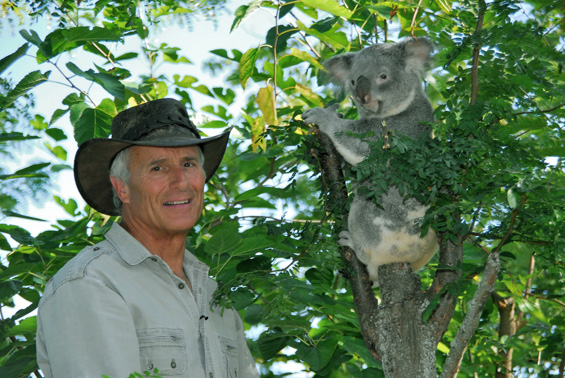
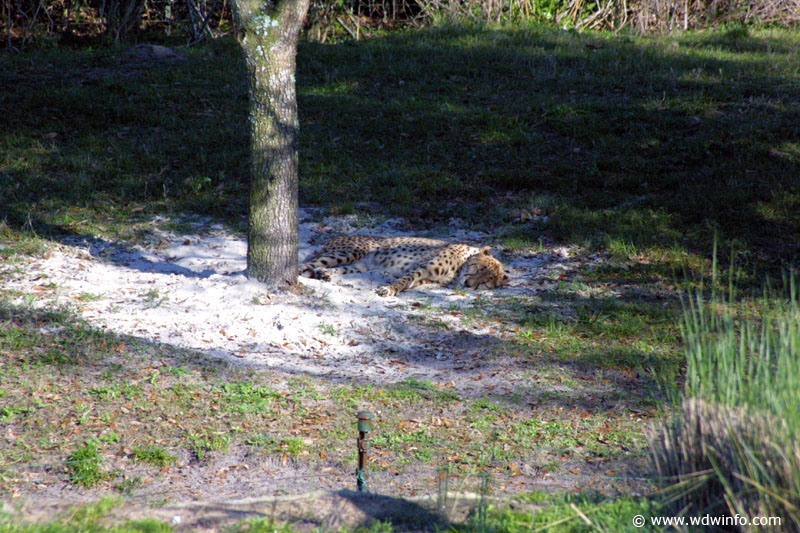
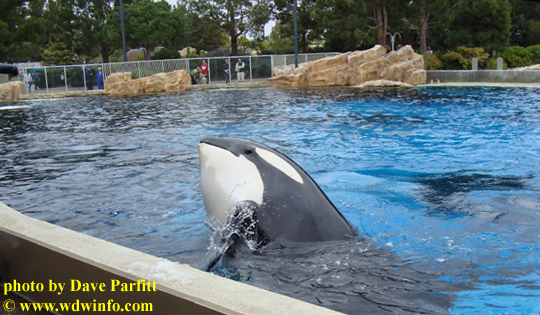
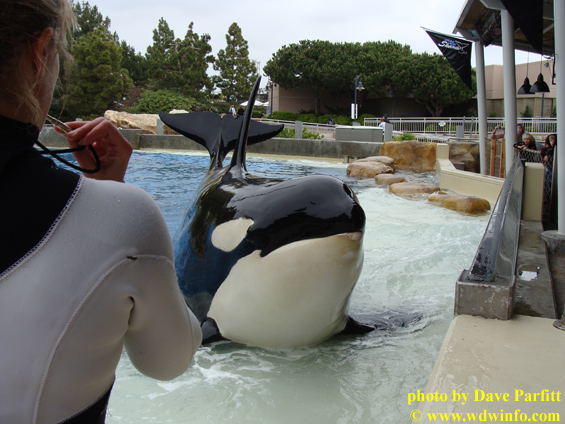
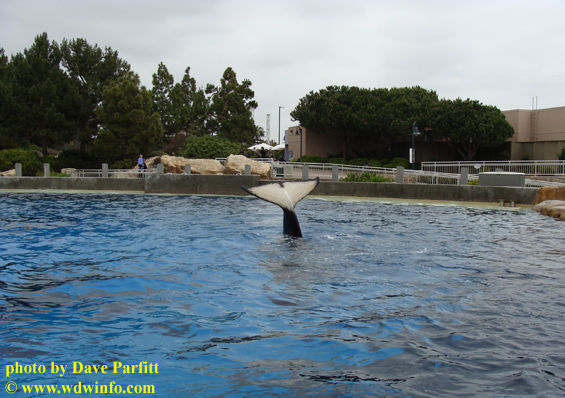
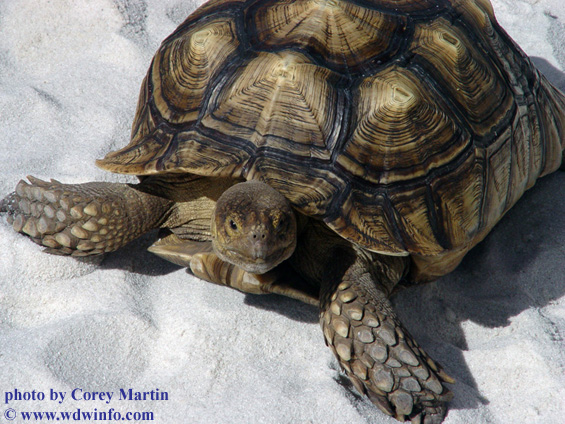
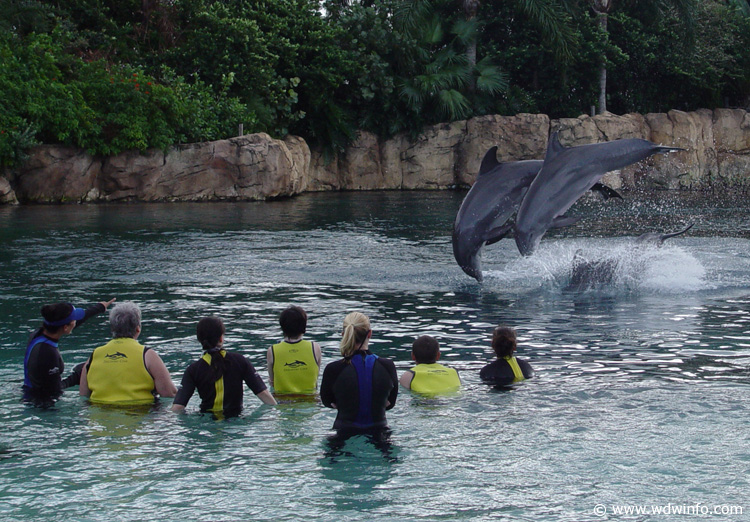
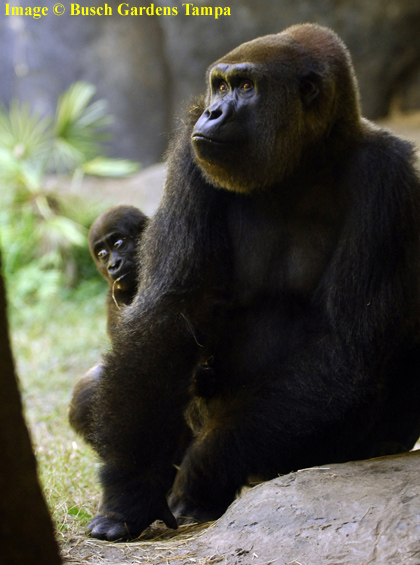
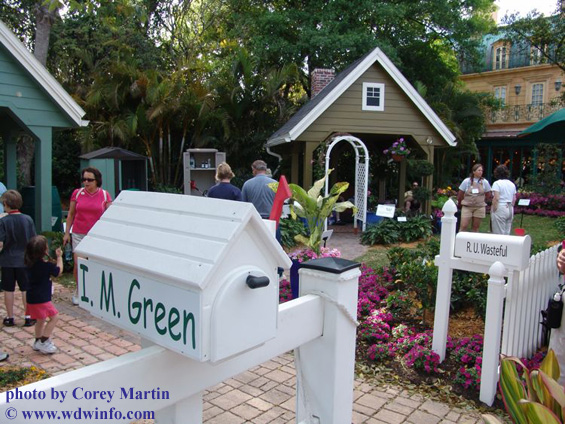
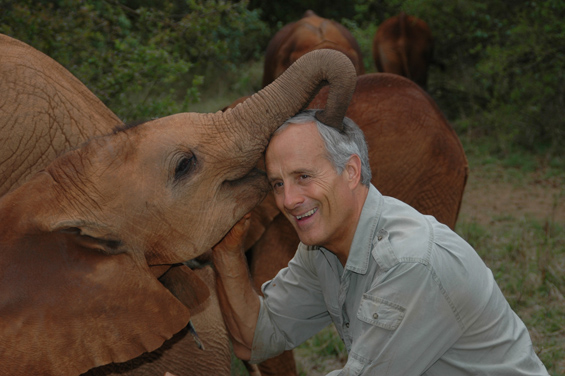
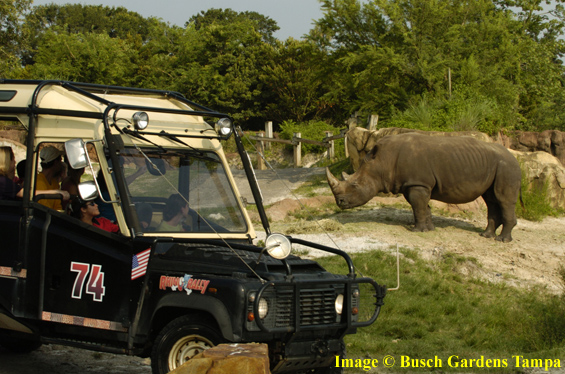
Leave a Reply